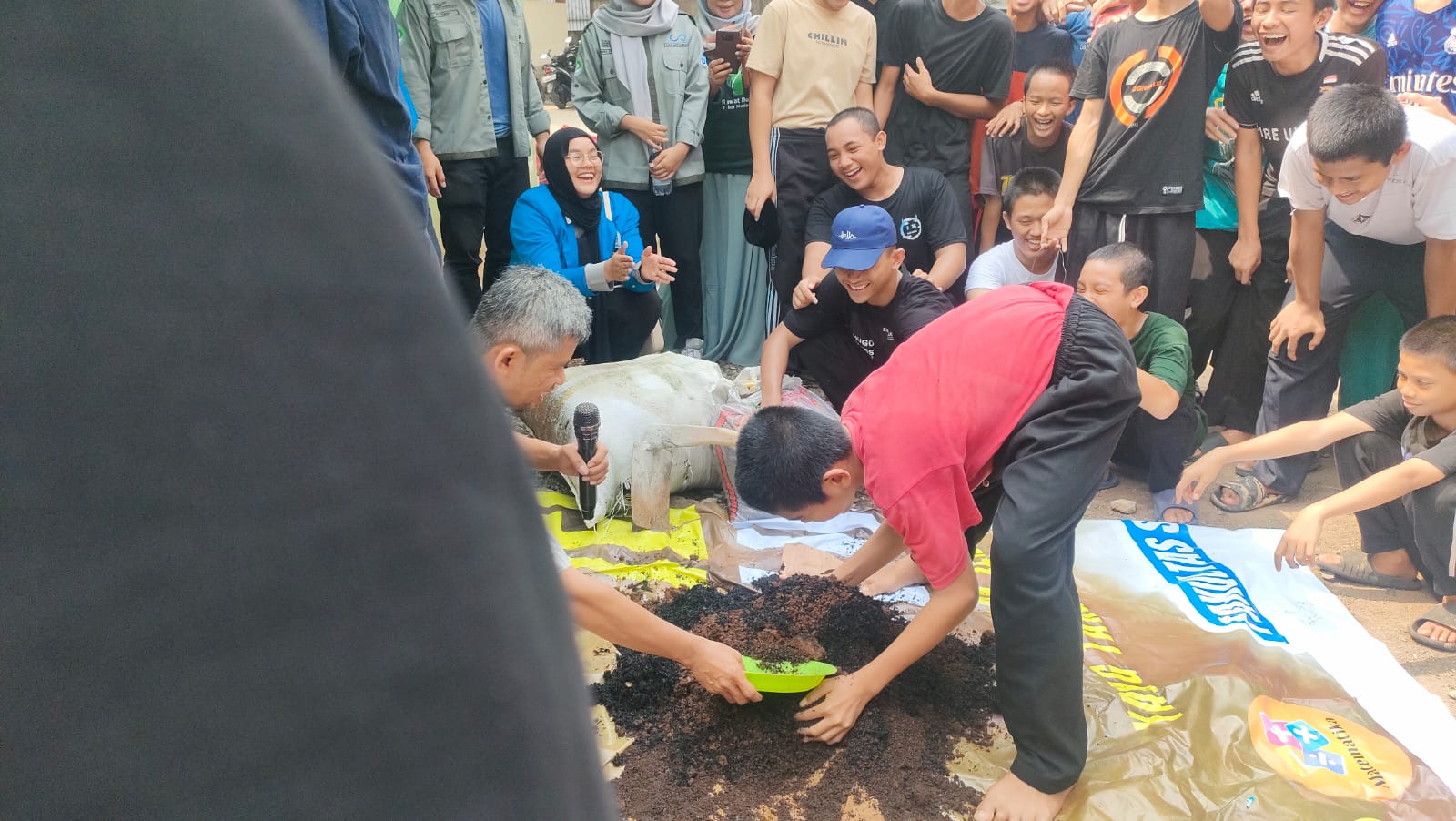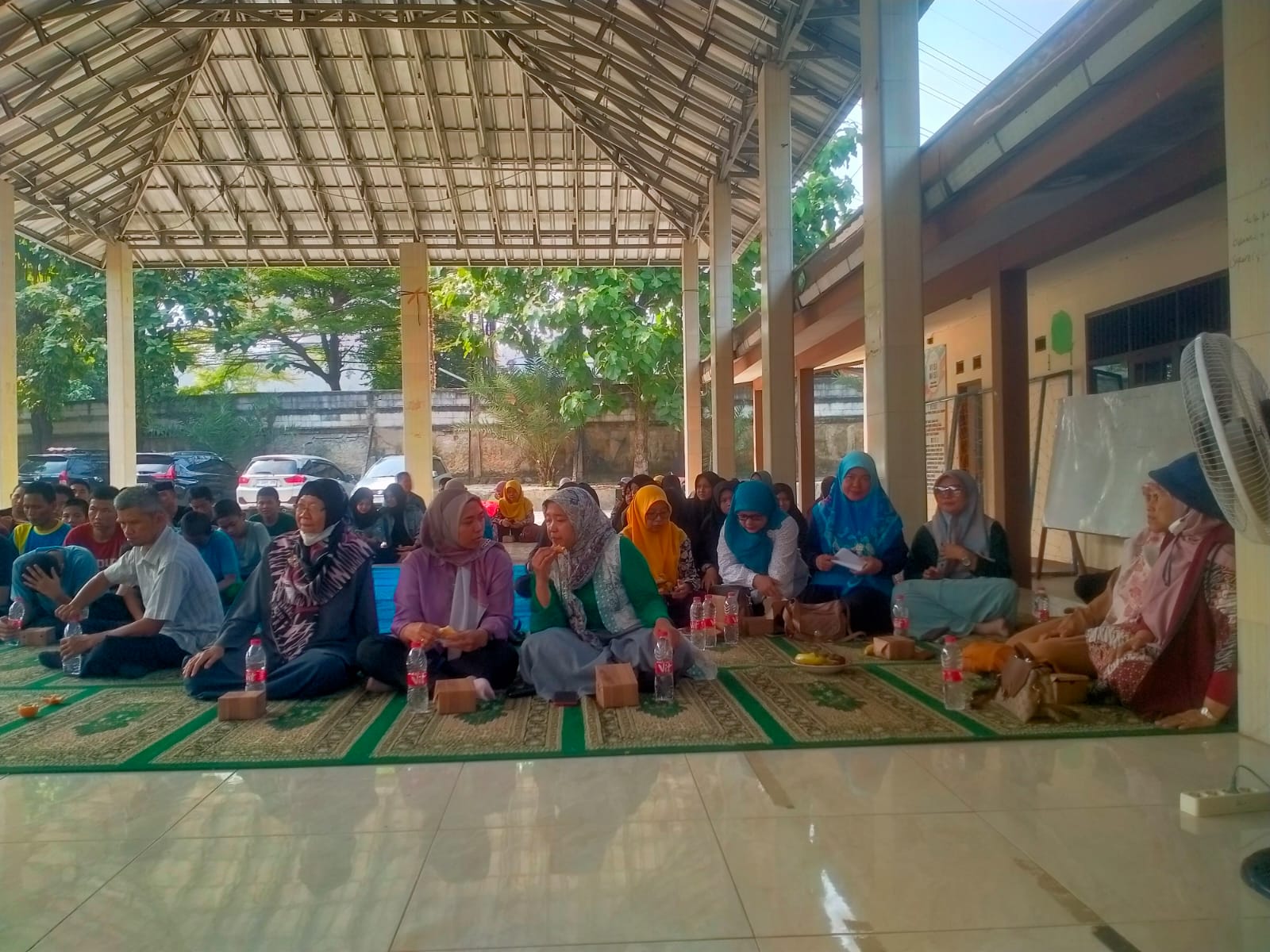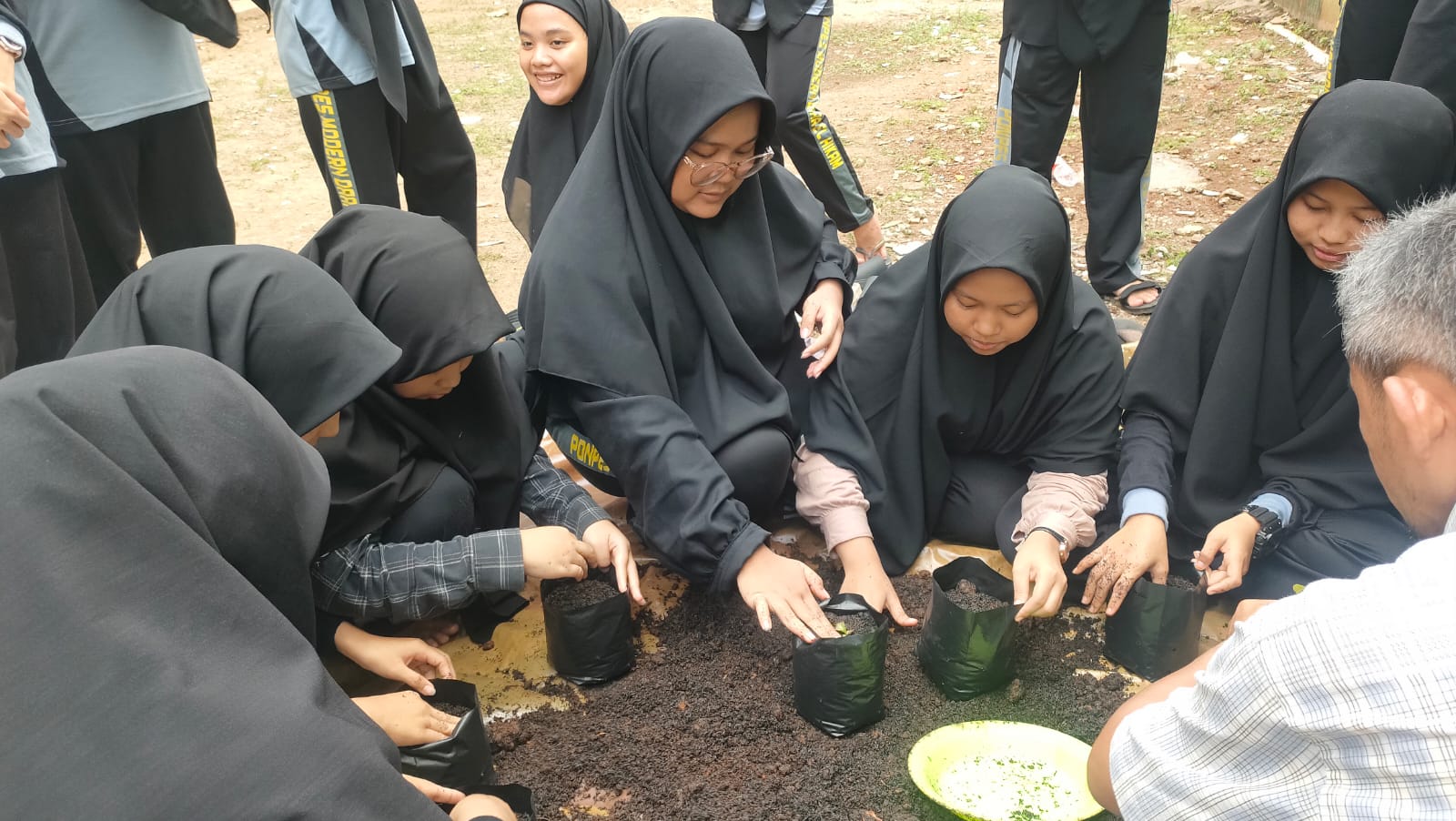REPORT ON THE IMPLEMENTATION OF COMMUNITY SERVICE ACTIVITIES COLLABORATION AGRIBUSINESS STUDY PROGRAM UIN JAKARTA RI RELIGIOUS EXTENSION ASSOCIATION (IPARI) SOUTH TANGERANG 31 MAY 2024
I. INTRODUCTION
The Agribusiness Study Program Organizes Seminars and Training on Planting Plants at The Daar El Hikam Islamic Boarding School. The Agribusiness Study Program, Faculty of Science and Technology, UIN Jakarta, successfully held Plant Planting Training Activities at the Daar el Hikam Islamic Boarding School with the theme "Environmental Preservation through Sustainable Food Islamic Boarding Schools" on Friday, May 31 2024. The seminar and training activities were held in collaboration with the South Tangerang Religious Extension Association in commemoration of the 1st HARLAH IPARI. In this activity, the Agribusiness study program also collaborated with HMJ Agribusiness UIN Jakarta, along with the UMJ Agribusiness Study Program. This collaboration between institutions is of course a good collaboration to provide benefits to society. This Community Service Activity carries the theme "Environmental Conservation through Sustainable Food Islamic Boarding Schools". This theme is intended so that Islamic boarding schools are able to independently prepare their food needs, especially vegetables. This is in line with the expertise possessed by lecturers in the Agribusiness study program, especially those with a scientific background in agrotechnology. It is hoped that there will not only be one Islamic boarding school but many Islamic boarding schools in South Tangerang.
II. RESULTS AND BENEFITS
Hydroponic vegetable cultivation training is an activity that aims to increase students' knowledge and skills in producing vegetables efficiently and sustainably without using soil. Through the hydroponic method, it is hoped that students can learn how to manage water resources and plant nutrients more effectively. Training activities are carried out in several stages:
1) Explanation of theory regarding the concept of hydroponics, types of systems, and the advantages of cultivating plants hydroponically.
2) Direct practical demonstration in preparing hydroponic media, planting seeds, and regulating nutrition and water pH.
3) Field practice at a location that has been prepared to practice directly how to care for hydroponic plants.
4) Interactive discussions and questions and answers to ensure students' understanding of the material being taught.
5) Control and Supervision which will be.
carried out once a week with the hThis activity provided positive results, including:
1) Increasing students' knowledge about hydroponic vegetable cultivation.
2) Increased practical skills in managing hydroponic systems.
3) Students are able to produce good quality vegetables independently.
4) Awareness of the importance of sustainable and environmentally friendly agriculture is increasing among students.
III. CLOSING
Based on the results of the training, it can be concluded that hydroponic vegetable cultivation training for students has great potential to increase independence and understanding of modern agriculture. Therefore, it is recommended to continue similar activities on an ongoing basis and involve more students to expand the positive impact. help of HMJ Agribusiness management in order to re-educate so that the planted plants grow well.



